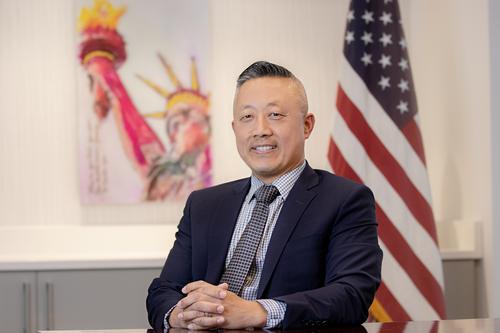The J-1 Visa is a visa for non-immigrants that is available to aliens that are considered Exchange Visitors. These visitors have been approved by the State Department to either study, teach, receive training or display unique skills. There are different waivers to the J-1 that a foreign exchange visitor can apply for. People interested in pursuing a J-1 visa or J-1 visa waiver should consult with an immigration attorney so that they know their best options.
Special Request
A request from a government or a designated state health agency, otherwise known as an IGA (Interested Government Agency) waiver is made when it’s been determined that it’s in the public interest that an alien remain in the country.
The specific U.S. agency generally provides financial support or has a vested interest in the research involved. Those agencies that can apply for foreign medical graduates are: the Department of Health and Human Services, Department of Veterans Affairs, the Department of Interior for Indian Reservations, and the Appalachian and Delta Regional Commissions. In addition, states that participate in the Conrad State 30 program can accept applications from the foreign medical graduates.
The Application Process for an IGA
The application process should begin in the latter stage of an individual’s program. One rule of thumb is to apply two-thirds of the way through a visiting research or professor program. That’s because if research being conducted could potentially be completed before the program is completed, the individual’s potential absence from the research group is minimized considerably. Also, published articles that help bolster the individual’s application through supporting evidence may take an extended period of time. Finally, the individual’s colleagues need time to develop a good working relationship together to write letters of recommendation.
Managing the Process
Once that process begins, a case number should be obtained, usually taking a month, depending on each individual IGA. Once the State Department receives it, they’ll take between one or two months to review before passing it on to the appropriate USCIS (United States Citizenship and Immigration Service) service center. Once that’s reviewed, a final decision is made. If approved, an I-485 Form is issued, possibly with just a recommendation letter from the State Department. Once again, processing time by the USCIS depends on the respective center.
“No Objection” Statement
A “No objection” statement from the home country of the visitor, is usually obtained from the consular section of the Washington, D.C. embassy of the visitor’s home country. This process begins based on the individual country’s policy, and can take from a few months to more than six months.
Fear of Persecution or Potential Hardship
Finally, the visitor may offer a claim of potential persecution or that their spouse and/or child who is a United States resident will suffer extreme hardship if they’re forced to return. In that case, two forms must filled out: the DS-3035 form is sent to the State Department, while the I-612 form is filed with the USCIS.
Important Costs to Remember
The cost to obtain any of the above waivers is $215 in either United States currency, a cashier’s check or a postal money order that’s been drawn on a bank or other financial company.
Do You Need Help In Getting Your Green Card Or Visa in Virgina, Maryland or Washington D.C.?
If you're trying to obtain a Green Card or Visa you need to speak with an experienced immigration attorney as soon as possible. Please contact us online or call our Vienna, Virgnia office directly at 703.991.7978 or our Rockville, Maryland office at 301.637.5392 to schedule your case consultation.

